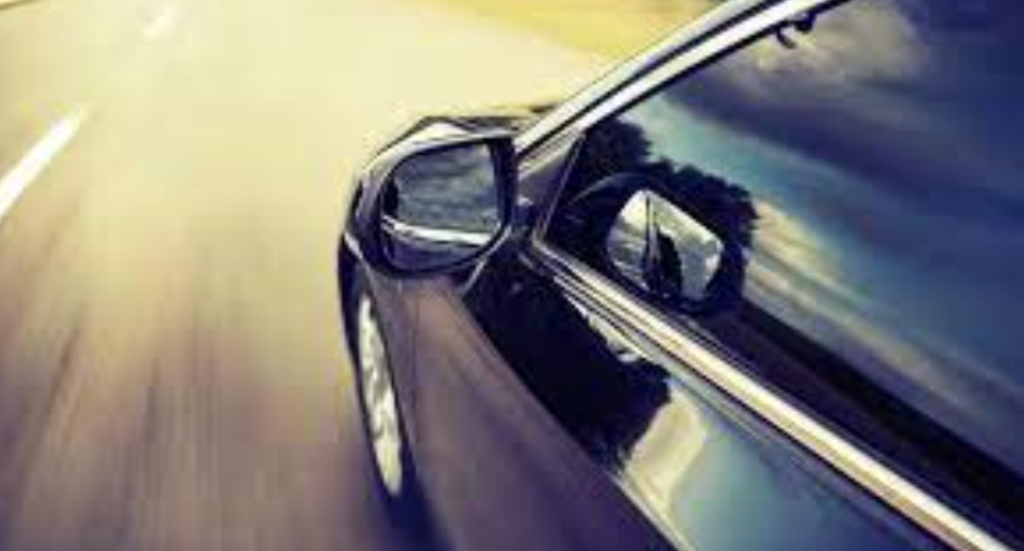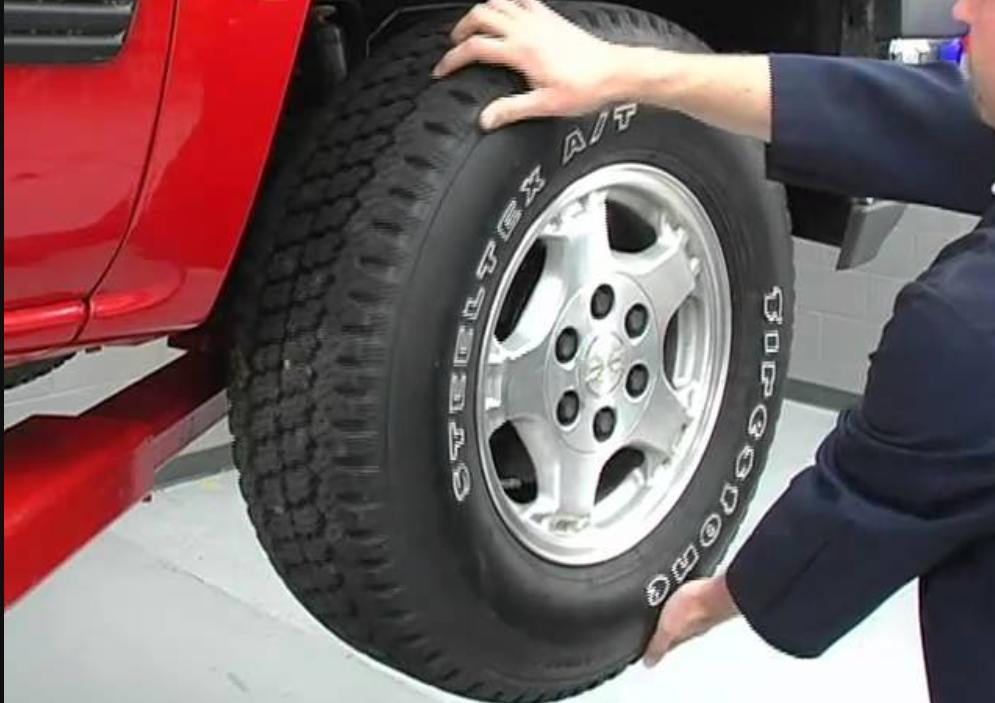A grinding noise from front wheel when driving can be disconcerting and an early warning sign of potential car trouble. Understanding such sounds and their likely causes is crucial to maintaining a vehicle’s performance and ensuring its longevity.

Understanding vehicle noises is an essential aspect of responsible car ownership. Ignoring these sounds can result in extensive damage, leading to costly repairs or replacements. This article aims to educate readers about the possible causes, diagnosis, and remedies for grinding noise from front wheel when driving.
Understanding Car Noises
Grinding noise is a harsh, abrasive sound—like two pieces of metal rubbing against each other. This is often a sign of mechanical issues that need immediate attention.
Distinguishing grinding noise from other car noises can be tricky but is crucial. While a squeaking sound might suggest a worn-out belt, a grinding noise usually indicates a more severe problem, often associated with metal-to-metal contact.
Different car parts can produce grinding noises, and if you notice a grinding noise from front wheel when driving, it might be due to issues with the brakes, wheel and tire, or the suspension system.
Probable Causes of Grinding Noise from Front Wheel When Driving
Brake System Issues
Grinding noise from front wheel when driving can often be traced back to issues with the brake system.
Worn-out Brake Pads: Even if the grinding noise isn’t noticeable during brake application, the brake pads could be excessively worn out. The pads provide a buffer between the caliper and the brake disc. When they wear down, the metal caliper might rub against the metal disc, causing a grinding noise.
Damaged Brake Discs: Brake discs, or rotors, can also be the culprits. Over time, they may develop grooves or become warped, which causes the brake pads to make irregular contact with the discs, leading to a grinding noise.
Brake Dust Shield: The dust shield, also known as the backing plate, is designed to keep debris away from the rotor. However, if it gets bent and starts scraping against the rotor, it could cause a grinding noise.
Wheel and Tire Problems
The wheel assembly and the tire can also be the source of grinding noises.
Bad Wheel Bearings: Wheel bearings are crucial as they allow the wheels to rotate smoothly. Damaged or worn-out wheel bearings can cause excessive friction and heat, resulting in a grinding noise when driving.
Failing CV Joints: The constant velocity (CV) joints, part of the drive-axle assembly, enable power delivery to the wheels while accommodating up-down suspension motion and left-right steering motion. If the protective boot gets damaged, dirt and debris can cause excessive wear on the joint, leading to a grinding noise.
Loose or Broken Wheel Components: Various wheel components, including the wheel nuts, wheel hub, lug bolts, and others, should be tightly secured. If any of these components become loose or broken, they might cause a grinding noise from front wheel when driving.
Tire Issues: Sometimes, foreign objects like stones or nails embedded in the tire can cause a grinding noise as the wheel rotates. In some cases, uneven tire wear can also result in a grinding noise.
Suspension System Issues
Problems within the suspension system can also lead to a grinding noise.
Worn-out or Damaged Struts or Shocks: The struts and shocks absorb the majority of the shock from the road and help control the suspension’s movement. When they become worn or damaged, there could be excessive metal-to-metal contact, resulting in a grinding noise.
Loose or Broken Suspension Components: The suspension system consists of several components, including control arms, ball joints, springs, and bushings. If any of these parts become loose or broken, they can cause a grinding noise when driving.
Failed Strut Mount or Bearing: The strut mount and bearing are key parts of the vehicle’s steering system. They ensure smooth steering and minimize noise and vibrations. If they fail, it can lead to a grinding noise when turning the wheel.
Each of these issues can result in grinding noise from front wheel when driving. Recognizing these potential causes can help with early detection and prevent further damage to your vehicle. It’s always best to have any unusual noises checked by a professional to ensure the correct diagnosis and repair.
Diagnosing the Grinding Noise
Necessity of Prompt Diagnosis
Prompt diagnosis of the grinding noise from front wheel when driving is crucial to prevent the escalation of minor issues into major ones. Addressing the grinding noise immediately can save you from expensive repairs down the line and ensures the safety and optimal performance of your vehicle.
Basic Steps to Identify the Origin of Grinding Noise
Identifying the source of the grinding noise requires a systematic approach:
Careful Observation: Keep a keen ear on the noise’s characteristics – when it occurs (while turning, accelerating, decelerating, or constantly), and from where it seems to originate.
Visual Inspection: Check for visible issues such as tire damage, loose components, or leaks. If the noise is persistent, safely jack up the vehicle and rotate the wheels manually to identify the problematic area.
Test Drives: Conducting a series of test drives under different conditions can also help pinpoint the origin of the noise. Take note of the driving conditions when the noise appears.
Professional Diagnostics: When to Approach a Mechanic
If the grinding noise source remains elusive or if the required repair is beyond your expertise, it’s time to consult a professional mechanic. Professional mechanics have the necessary experience, tools, and knowledge to diagnose and fix the issue accurately.
Potential Hazards of Overlooking Grinding Noise
Ignoring the grinding noise can have detrimental effects. Apart from the potential for escalating repair costs, it can lead to a breakdown in crucial situations. Moreover, it might signal safety-related issues such as a compromised brake system or wheel assembly, posing a threat to both the driver and passengers.
Troubleshooting and Addressing Grinding Noise Problems
DIY Solutions
Brake System Repairs: If the problem lies with the brake system, changing worn-out brake pads or discs might solve the issue. However, ensure you have the necessary knowledge and tools to carry out these repairs safely.
Wheel and Tire Repairs: Damaged wheel bearings or a failing CV joint might need replacement. Small tire issues like removing embedded stones can be addressed at home.
Suspension System Repairs: Some minor suspension repairs such as replacing worn-out bushings can be done DIY-style, but more complex repairs should be left to professionals.
Professional Repairs: When to Resort to Expert Assistance
In case of more complex issues, or if the grinding noise persists despite your best efforts, it’s advisable to seek professional help. Remember, an incorrect repair can lead to additional problems or safety risks.

Preventative Maintenance to Dodge Grinding Noise
Regular service and maintenance checks can prevent issues from cropping up in the first place. Regular inspections of the brake system, tire rotations, wheel alignments, and suspension checks can help avoid the occurrence of grinding noise from front wheel when driving.
Case Studies
Case Study 1: Brake System-Related Issue
In one instance, a driver noticed a grinding noise from front wheel when driving. After inspection, it was found that the brake pads were severely worn, causing the metal caliper to grind against the brake disc. The replacement of brake pads resolved the issue.
Case Study 2: Wheel and Tire-Related Problem
Another driver experienced a grinding noise that intensified with acceleration. The mechanic identified a failed wheel bearing as the cause. After replacing the wheel bearing, the grinding noise disappeared.
Case Study 3: Suspension System-Related Issue
In another case, a persistent grinding noise was traced back to a worn-out shock absorber. Once the shock absorber was replaced, the grinding noise ceased. These cases underline the importance of prompt attention to grinding noise from front wheel when driving and taking appropriate remedial action.
Conclusion
Understanding and addressing a grinding noise from front wheel when driving is crucial to ensure your vehicle’s safety and longevity. It’s clear that this phenomenon can stem from a variety of causes, including brake system issues, wheel and tire problems, and suspension system issues. Thus, immediate diagnosis is paramount for the effective resolution of such a problem, be it through a DIY solution or professional repair.
Moreover, case studies demonstrate the importance of quick and appropriate response to such noises. As these real-life instances show, early diagnosis and intervention can effectively resolve grinding noise issues and prevent more complex and costly repairs down the line.
However, the most efficient way to prevent the occurrence of such issues is through regular preventive maintenance. This not only keeps the vehicle in optimal condition but also significantly reduces the chances of experiencing grinding noises when driving.
In short, a grinding noise from front wheel when driving should not be taken lightly. It serves as a warning signal that something is wrong with your vehicle. Whether you’re a seasoned driver or a novice, understanding the potential causes of such noises, their diagnosis, and fixes, can help you maintain your vehicle in excellent shape and provide you with a safe and smooth driving experience.
FAQs: Grinding noise from front wheel when driving
What could cause a grinding noise from front wheel when driving?
A grinding noise from the front wheel when driving could be due to brake system issues, wheel and tire problems, or suspension system issues. This includes worn-out brake pads, bad wheel bearings, failing CV joints, or damaged struts or shocks.
How urgent is it to fix a grinding noise from the front wheel when driving?
It’s crucial to address any grinding noises promptly. Ignoring these sounds can lead to more severe and costly issues in the future.
Can I diagnose the source of a grinding noise myself?
While some basic checks can be done at home, professional diagnosis is often necessary for more complicated issues.
Can a grinding noise from front wheel when driving be prevented?
Yes, regular maintenance and inspection of the car’s brake system, wheel and tire, and suspension system can prevent such noises.
Should I take my car to a mechanic if I hear a grinding noise from the front wheel when driving?
Yes, it’s always a good idea to consult a professional if you hear any unusual noises from your car.
Can I fix the grinding noise from front wheel when driving myself?
While some minor issues can be addressed at home, most issues causing grinding noises require professional repairs.
Can I still drive my car if it’s making a grinding noise?
Driving a car that’s making a grinding noise can cause further damage. It’s best to have the noise checked and resolved as soon as possible.